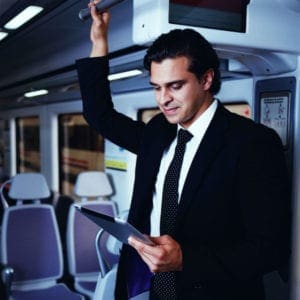 In a field as highly competitive as hospitality, an effective public relations (PR) strategy is a must. But PR can also feel like a guessing game at times, where you’re effectively trying to understand what journalists and the community will be interested in.
In a field as highly competitive as hospitality, an effective public relations (PR) strategy is a must. But PR can also feel like a guessing game at times, where you’re effectively trying to understand what journalists and the community will be interested in.
This can be especially true for the hospitality industry, where there often isn’t a great deal of understanding about PR. It’s a role that is often given to a marketing or sales executive, who might not have formal training in PR strategy and execution.
In starting to plan a formal PR strategy, aside from recruiting a dedicated professional to direct the strategy, there are some simple things that you can do to maximise the exposure that your campaign will have. The core to success is to properly plan and invest, but also to understand that it’s the relationship your PR team has with the media that will determine whether the strategy is a success or failure.
Planning is everything
The best PR campaigns are based on 12 month calendars, where announcements, news releases, and events are carefully spaced apart so there is no period of inactivity through the year. Media engagement needs to be a year-long cycle for two reasons – firstly it builds up your presence within the media as a trusted source of information, and secondly it enhances your visibility with potential customers. With the way the modern media works, six months (if not shorter) is a long enough time that you can be forgotten, so make sure you’ve got a full calendar planned at the start of every year.
The calendar should be flexible so you can react to the inevitable when time-sensitive opportunities arrive through the year, but simply having the calendar in place will focus your organisation on generating news regardless of what’s going on.
It is also important to plan in advance for when things go wrong. Most organisations have to deal with controversy at some point, and if it’s poorly handled it can cause real and lasting damage to your brand. In the heat of controversy it can be difficult to organise a controlled response, so it’s important from a PR perspective to have a clear plan in place on how to respond appropriately to negative scenarios should they occur.
Develop a good relationship with the media
The media is either your most valuable ally in PR or your biggest headache. There are a couple of things you can do to stack the odds in your favour when engaging with the media:
- Take the time to properly research the right media outlets for your specific audience. There are a lot of publications out there, but there’s little value in trying to engage with the editor of a luxury holidays publication if you’re running a budget hotel. For this reason, don’t buy into databases of media contacts – research your own and draw up your own list of target media contacts.
- Don’t rely on a mass email of a press release, especially as a first contact with a media organisation. Instead, call the editor up personally and try to catch up with them over a coffee at some point to introduce yourself formally. Journalists are people too and tend to respond better to people they know on a personal level. They are then more inclined to take notice of a press release sent by someone they know. It also gives you a chance to highlight your depth of expertise in the industry and present yourself as an expert information source.
- Offer to contribute to the publication directly. Most media websites now accept content from representatives of the industry, whether that’s a “byline” article or a case study. It benefits the media outlet because it’s more content for their readers to get stuck into. And it benefits you because it not only gives you coverage, it also positions you as an expert which helps build the reputation of your organisation.
Budget accurately
Many in hospitality see PR as an expense that, once a director has appointed to oversee it, no longer needs investment. They then go back to investing in placing advertisements on TV and more traditional marketing.This is disappointing, because PR actually provides a more cost-effective method for promoting a travel product, meaning that the more you put into the PR strategy, the greater the returns.
Investing in placing stories with press releases, columns and providing the right resources to properly engage with the media will have a superb return on investment, but it needs funding as much as advertising does. If you can’t resource it adequately in-house, then consider bringing on an agency to handle it instead. There are many fine PR agencies that specialise in looking after the hospitality industry and will ensure that you get the exposure you need from your investment.
Recruit the right person
If you do decide to appoint a dedicated PR team within the organisation, then firstly it’s important to understand that PR does require a different skillset to an advertising or sales role. You’ll need someone with a different set of skills who can write compelling copy as a journalist and understand the internal workings of the media. This is why a lot of PR professionals are either former journalists or people who hold degrees in the media.
More than anything it’s important to understand that PR is an ongoing process. Relationships with the media need to be developed and then maintained, so ideally you want an individual to lead the PR efforts who is going to be with the business for the long term as well.
About the author
 Jo Scard has played a unique role as a senior adviser in the Australian Federal Government for over a decade. She’s also worked as a communications strategist in London, a TV political journalist (Australia/UK) and as a strategic adviser to countless corporates and Not-For-Profits across the globe. Jo started Fifty Acres because she noticed a lack of quality service delivery in the communications landscape and knew she could fill that space.
Jo Scard has played a unique role as a senior adviser in the Australian Federal Government for over a decade. She’s also worked as a communications strategist in London, a TV political journalist (Australia/UK) and as a strategic adviser to countless corporates and Not-For-Profits across the globe. Jo started Fifty Acres because she noticed a lack of quality service delivery in the communications landscape and knew she could fill that space.















